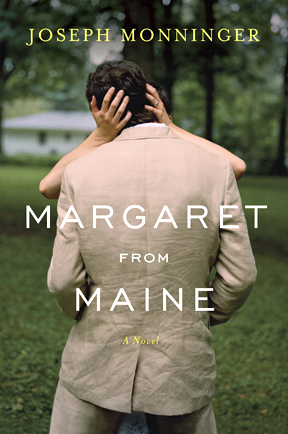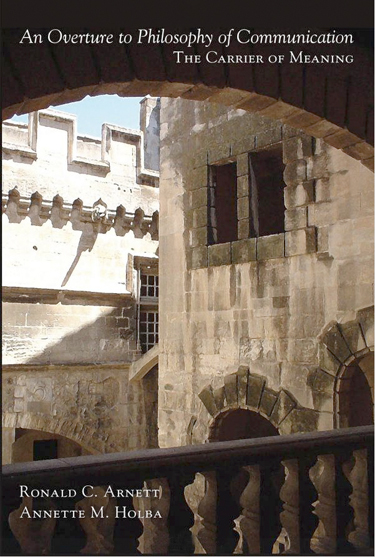Talking about the Weather
Liz Ahl, professor of English
Award-winning poet Liz Ahl has released a hand-sewn limited-edition chapbook that she calls a “love letter to this part of New Hampshire.” When Ahl talks about the weather (“from mud season to the icy depths of January”) readers familiar with her work won’t be surprised to discern another conversation going on at the same time, addressing neighbors and friends, well-loved art, and the unwelcome jolt of the morning newspaper. Ahl is tender in “Neighborly,” writing about shoveling a path to the mailbox of a recently deceased neighbor. And she writes with humor about the subtle competition among seekers of the season’s first farm-stand corn, or a toddler who licks the chrome bumper of a car before her father can intervene.
 Margaret from Maine
Margaret from Maine
Joseph Monninger, professor of English
Torn by her commitment to a husband who was critically injured in the Afghan war and a growing love for another veteran, Margaret must face an age-old lovers’ dilemma against the backdrop of patriotic duty.
When asked about his inspiration for his latest novel, Joe Monninger says, “One day I drove past a dairy farm and saw a woman leading a cow. I tried to imagine her life and one bit of imagination led to the next. The result is Margaret from Maine, the story of a woman who lived on a dairy farm and the things that happened to her.”
Any Other Branch
Ivy Page ’07, faculty in English
In her debut collection, Ivy Page
creates four sections of poems—Men, Room, Girl, and High Tide—to represent developmental life stages. Nine years in the making, the collection originated in Professor Liz Ahl’s creative writing class during Page’s undergraduate studies. Her poetry is wry, poignant, and sensual. Lines in “Word Diet” give readers a “taste” of her experience writing the book: “Nothing lately, from my kitchen/tastes as sweet as ink—/foregoing dinner for dessert/a collection of letters/on the tongue like Honey—/tiny core of syrup/hidden in—Suckle.”
Reflections from the Forest House
Nancy Puglisi ’81G, professor of counselor education and school psychology
Calling her most recent collection “a slice of life,” Nancy Puglisi’s reflections on friendship, love, and loss are universal. Tender verses about her affection for siblings or her fondness for puttering in the garden coexist with poems reflecting her passionate opinions about the environment (“Fundamentals,” “Superiority”) or gay issues (“In Defense of What,” “Don’t Ask Don’t Tell”). Readers of this highly personal collection may find themselves feeling an unexpected kinship with Puglisi.
 An Overture to Philosophy of Communication
An Overture to Philosophy of Communication
Annette Holba, professor of rhetoric (with co-author Ronald Arnett)
Philosophy of communication is a rapidly emerging field, yet until Annette Holba and co-author Ronald Arnett wrote An Overture to Philosophy of Communication, there was no real model for teaching it in the classroom. The authors set about remedying the situation with a scholarly book that is intended for use in the classroom. The story of Zorba the Greek is woven throughout the narrative, exemplifying, as Holba says, “the ways human beings make meaning through engagement with others.” The book won the prestigious Everett Lee Hunt Award from the Eastern Communication Association.
Cloud vs. Cloud
Ethan Paquin ’98, faculty in English
From the book jacket: Ethan Paquin writes “Language is notorious.” In his latest collection, language is as lush and textured as the mountains and oceans that are his subjects, and familiar natural landmarks are representational of memory so that mind and body become layers in this vast loam …. Only through knowledge of the rough earth will he come to know the self: “carry me like a reed-basket of water over the pinions of landscapes / blasted by heat and then i will know where i belong.”
Gypsies of the White Mountains
Bruce Heald, faculty in history and philosophy
After exploring Mt. Washington’s cog railway, the Old Man of the Mountain, and the history of dog sledding in New England, historian and author Bruce Heald once again digs deep into the intriguing past of New Hampshire’s North Country. This time he investigates a little-known group of travelers through the White Mountains in the heyday of this region’s tourism boom: Gypsies. Heald provides a fascinating history of this oft-persecuted minority, and traces their journey to and through the White Mountains where, for a time, they made a living entertaining tourists, telling fortunes, and making music.
 No Vacancy: The Rise, Demise, and Reprise of America’s Motels
No Vacancy: The Rise, Demise, and Reprise of America’s Motels
Mark Okrant, professor of tourism management
No Vacancy is Mark Okrant’s latest non-fictional look at the motel industry (previously he brought us Sleeping Alongside the Road and a murder mystery series set in historic resorts). Okrant, a nationally recognized expert in tourism research and director of PSU’s Institute for New Hampshire Studies, has been a motel patron all his life. “Motels were a central part of incredible experiences with my parents and brother and, later, with my wife and daughters,” he says. “Something needs to be done to show others why they were important, and how many of them can be again.” With this perspective on the history of motels and the prospects for saving them, Okrant has taken a big step toward that goal.
Writing the Nomadic Experience in Contemporary Francophone Literature
Katharine N. Harrington, professor of French
Literary “nomads,” according to author Katharine Harrington, “reconsider rigid definitions of borders, classifications, and identities.” In her latest book, Harrington studies four contemporary French-language writers who are not easily defined by geographical, cultural, or linguistic boundaries. She writes, “I examine how these authors’ life experiences are reflected in their writing and how they may inform us on the state of our increasingly global world where borders and identities are blurred.”
Prison Violence: Causes, Consequences and Solutions
Kristine Levan, professor of criminal justice
In the very first pages of Prison Violence Kristine Levan boldly confronts her topic: “violence [in prison] is not only accepted, but has indeed become expected among prisoners and correctional staff …. [S]uccessfully reducing prison violence means disentangling the convict code and disrupting the prison culture at its very core.” She goes on to provide a comprehensive analysis of prison violence and its impacts, both in and out of prison. Levan explores the challenges faced by policy makers and scholars in understanding the problem, describes what is currently being done to address the issue, and offers myriad approaches to handle the many facets of prison violence.
Tags: publications






